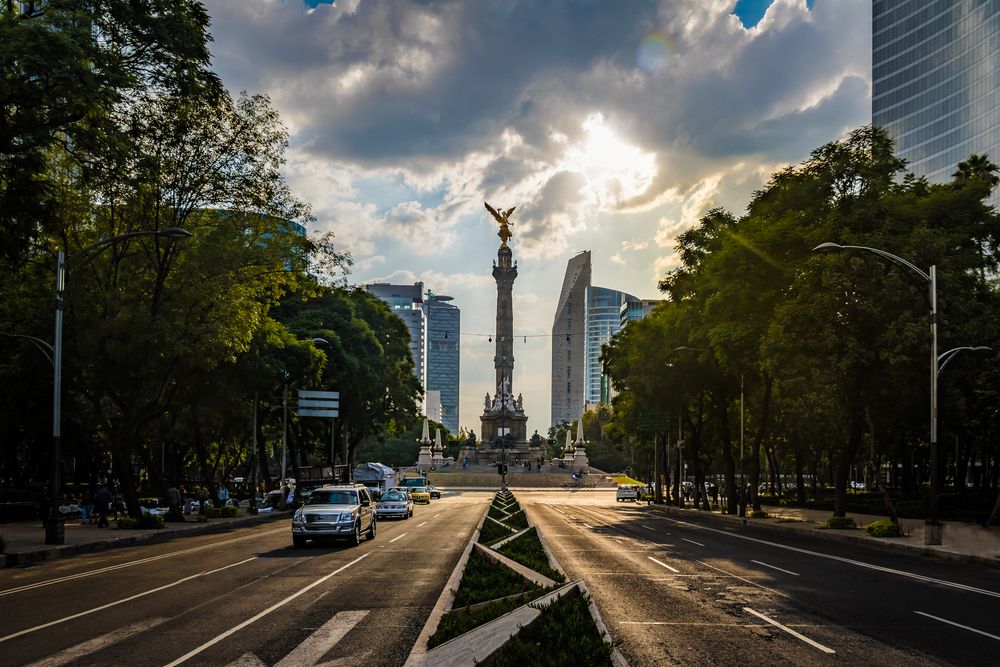Weight loss procedures essentially come in two forms: surgical and nonsurgical. Before choosing to undergo any such procedure, be sure to understand the risks and alternative options, such as dieting and exercise. (Learn More)
Surgical weight loss procedures are riskier, and some are irreversible, but they also have much bigger results than nonsurgical weight loss procedures. Nonsurgical options tend to be cheaper and less risky, but they have subtler results. (Learn More)
Many people choose to go abroad for surgical weight loss procedures. It is rarer to do so for nonsurgical weight loss options.
If you do your research and choose a reputable facility, you could save hundreds or thousands of dollars without a significant change in the risk of complications.(Learn More)
Be sure to research things beyond cost — namely the quality of the health care in the country you will be going to. (Learn More) Once you properly assess the risks associated with your procedure and the facility you’ve chosen, you can then decide if traveling abroad for care is right for you. (Learn More)
Weight Loss Procedures
The first path to weight loss is never surgery or other procedures. Most everyone first tries the traditional route of diet and exercise. When this is unsuccessful and other factors are at play, people turn to weight loss procedures.
These procedures come in many flavors. Broadly speaking, they can be put into two camps: surgical and nonsurgical.
Before going through with any weight loss procedure, you need to discuss the best route for you with a trained medical professional. It’s often good to start with your primary care physician who can then refer you to a specialist.
Once you’ve had this discussion and it is determined you would benefit from a procedure, you must consider the involved costs. These procedures can be extremely expensive, and often, U.S. insurance providers will not cover them.
If the procedure is strictly cosmetic, it will not likely be covered. If there is a distinct medical benefit and it is determined that it is even medically necessary, the costs may be covered.
The high out-of-pocket costs have led many to search for an answer abroad, where these procedures may be cheaper. This is called medical tourism. A person goes to a different country (touring) to take advantage of that country’s cheaper health care system. This carries several benefits and drawbacks.
Surgical vs. Nonsurgical Procedures
Bariatric surgery is intended to help obese people lose weight. Three of those most common surgeries performed to help people are gastric bypass surgery, sleeve gastrectomy, and surgery to put a lap band around the stomach.
While these procedures can certainly help one lose weight, it should be noted that they all have drawbacks. A sleeve gastrectomy is irreversible and a newer procedure that may have currently unknown risks, for instance.
Of the three options, having a lap band (also called gastric banding) inserted is the safest. It is also reversible.
Nonsurgical options tend to be cheaper, provide less significant weight loss, and generally carry fewer risks. There are many such procedures, including the following:
- Cryolipolysis
- Laser treatment
- Injectable deoxycholic acid
- Ultrasound fat reduction
- Red light therapy
These procedures tend to be for people with milder weight loss concerns rather than more serious weight issues like morbid obesity. Usually, these procedures will not dramatically reduce your risk of weight-related medical complications.
Costs in America and Abroad
According to one website specializing in bariatric surgery, the following were the average 2018 costs in the U.S. for these weight loss surgical procedures:
- Gastric bypass surgery: $23,000
- Lap band surgery: $14,500
- Sleeve gastrectomy: $14,900
Nonsurgical procedures are usually significantly cheaper. For example, a typical set of cryolipolysis treatments costs $2,000 to $4,000 total, according to one company. Red light therapy costs about $2,600 for six full-body sessions, according to another source.
There is an issue that can complicate matters significantly. Many of these nonsurgical procedures require multiple treatment sessions. Medical tourism is about cost savings, and multiple sessions complicate this. When numerous sessions are required, you either need to pay for a lengthy stay or multiple plane tickets.
You should always research the average cost and quality of a procedure before scheduling it in a foreign country (and remember to account for travel and accommodation costs). You will find quite a bit of variation in prices between different areas.
Baltic states such as Latvia and Lithuania are popular for weight loss surgical procedures. They have many high-quality clinics where these procedures are available at a low cost.
When done properly, medical tourism can save you hundreds or even thousands of dollars without much additional risk. The real caveat is that you must put in the work to find a truly reputable facility. Simply choosing the cheapest path available is dangerous.
Risks of Medical Tourism
Bariatric surgery is complicated and often requires significant aftercare. You must research thoroughly what type of care you will need, when you will be able to travel again after your procedure, and related issues. You should also research the facility you are going to and the quality of the health care regulations in the nation it is located.
If these procedures go poorly or you receive poor aftercare, you could die or experience otherwise avoidable complications. Quality care is essential.
Postoperative care and proper patient education (where a doctor explains the nature of any lifestyle changes and medical needs that arise from your procedure) should not be overlooked. As the American Society for Metabolic and Bariatric Surgery (ASMBS) notes, some facilities abroad may be underequipped, in a rush, or too poorly staffed to properly provide these to you.
Assess Risks Carefully

For many, a given weight loss procedure may represent too much risk for too little benefit. Surgical procedures are often only suited to those at a high risk of morbidity and mortality associated with their weight.
Bariatric surgery carries its own risks of complications. It can require lifelong checkups to make sure you are healthy.
In many instances, weight loss surgery can dramatically increase quality of life and will likely extend life. While there are risks of surgery, the benefits of these procedures often greatly outweigh the risks.
Ultimately, you can save money by traveling abroad for certain weight loss procedures. Consider the full timeline for recovery before you decide this is the best choice for you.
You should also discuss this with your primary care physician. They can advise you on the best path forward for your situation.
References
Medical Tourism. Centers for Disease Control and Prevention.
Choosing a Type of Weight Loss Surgery. (March 26, 2018). WebMD.
Bariatric Surgery. (September 2010). Canadian Family Physician.
Lose Weight Without Surgery. UChicago Medicine.
Non-Surgical Fat Reduction. The American Board of Cosmetic Surgery.
Weight Loss Surgery Insurance Coverage and Costs. (September 28, 2018). Obesity Coverage.
Medical Tourism. American Society for Metabolic and Bariatric Surgery (ASMBS).
A Lack of Insurance is Leading More Americans to Have Weight Loss Surgery in Mexico. (October 8, 2018). Vox.
If You’re Thinking About Trying CoolSculpting®, Here’s a Few Things You Should Know. Allergan.
UltraSlim Weight Loss Technology. Berkshire Mountain Chiropractic.
Which Countries Are Popular for Obesity Surgery Abroad? (March 12, 2013). NetDoctor.













